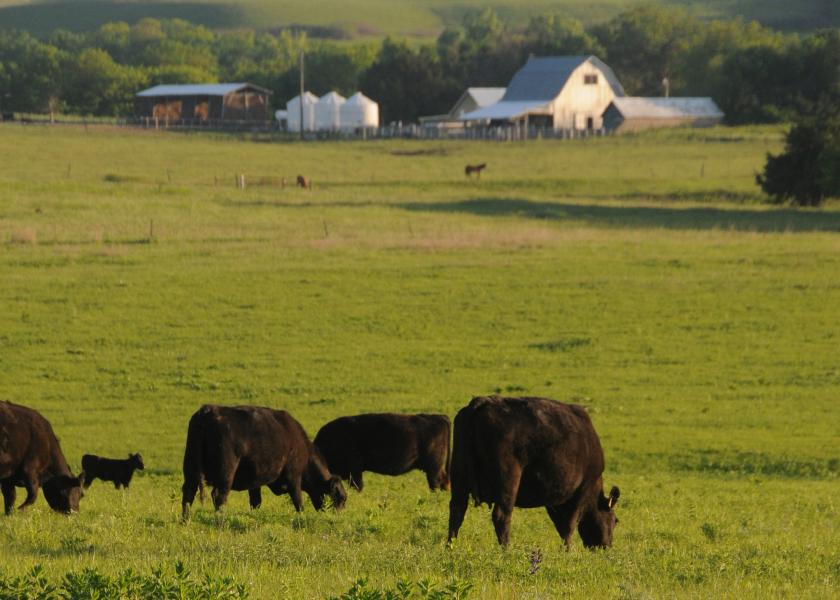Use Sound Grazing Practices to Reduce Overgrazing and Weeds

By Linda Geist, University of Missouri Extension
Weed problems may explode this year thanks to the drought of 2018 and residual problems associated with overgrazing in parched pastures, says University of Missouri Extension agronomist Valerie Tate.
Last year's extreme weather conditions created a forage shortage. As a result, many pastures were overgrazed.
When pastures are overgrazed, there is little green leaf material left to make sugars for plant growth, says Tate. When more than half of the aboveground plant material is removed, root growth slows or even stops. Weakened root systems reduce the ability to take up water and nutrients.
"Overgrazed pastures provide an opportunity for weeds to fill in the open spaces left when the forage is grazed short and plant roots are stunted," Tate says.
A cooperative program between Natural Resources Conservation Services and MU Extension provides forage and livestock producers an opportunity to get technical help to design grazing plans that give pastures periods of rest. These rest periods make pastures stronger and healthier.
Well-rested pastures let more water into the soil and allow plants to have more vigorous root systems. Deep root systems and large carbohydrate stores help forages resist environmental stresses such as drought.
Proper soil fertility also helps reduce the encroachment of weeds in pastures. Over a two-year period, MU Extension weed scientist Kevin Bradley and his students surveyed 46 Missouri sites every two weeks from April through October.
They found that 80 percent of the pastures surveyed showed low or very low soil phosphorus levels. Thirty-seven percent presented low or very low soil potassium levels. Soil pH averaged 5.8. When pH increased by one unit, total weed density shrank by more than 4,000 weeds per acre. Common ragweed and lanceleaf ragweed dramatically decreased when pH increased. Yellow foxtail also fell significantly.
If annual weeds like ragweed and foxtail are problems in pastures and hayfields, improving pH, phosphorus and potassium levels may be more beneficial than controlling weeds with herbicides, says Tate. Perennial weeds like horsenettle and ironweed are more effectively controlled with herbicides.
For more information, contact your local University of Missouri Extension agronomist or go to NRCS-GrasslandsProject.missouri.edu.







